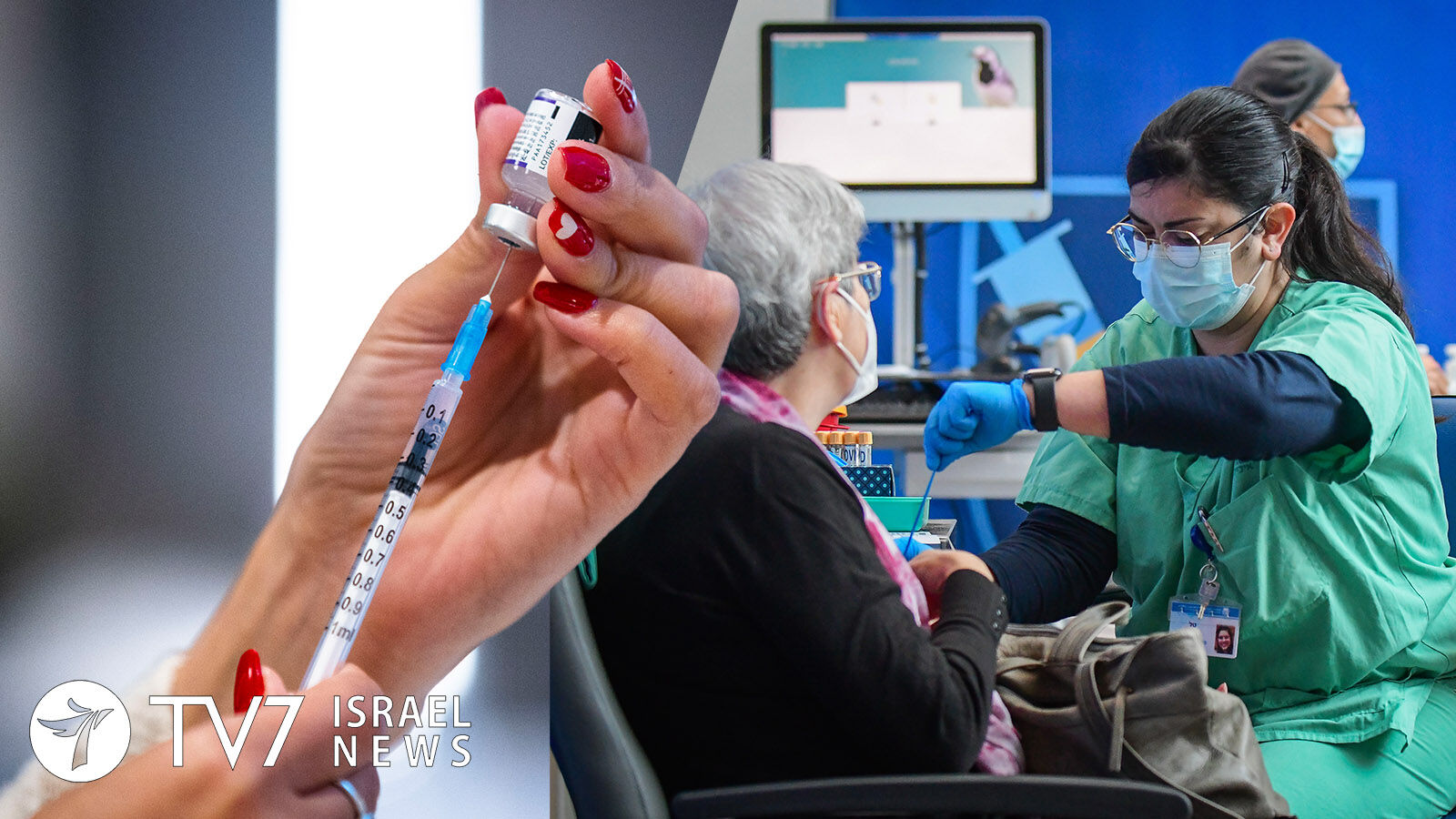“Israel will once again be pioneering the global vaccination effort,” Prime Minister Naftali Bennett announced in a televised news conference, underscoring, “We now have a new layer of defense.“
By Erin Viner
Jerusalem approved the administration of the second Pfizer Inc /BioNTech SE “booster shot” for those over the age of 60, medical staff, immune-compromised or living in care homes amid a spike in Omicron variant infections.
Prime Minister Bennett has already declared the latest campaign as “a great success” after 100,000 citizens were either jabbed with their 4th shot or booked an appointment within just hours. “Vaccines protect us from serious illness and quarantine, and the public understands that,” he said according to a statement TV7 obtained from his media advisor.
Health Ministry Director General Nachman Ash announced approval of the Merck & Co. molnupiravir anti-viral pill for use in COVID-19 patients over 18, as the country strives to reach “herd immunity” – the point when a population can be ‘protected’ from a virus through either vaccination or the development of antibodies after contracting the disease.
Daily coronavirus cases in Israel are expected to reach record highs in the coming 3 weeks as part of the worldwide wave of the highly transmissible Omicron variant.
About 60% of the country’s 9.4 million population are considered to be fully vaccinated with 3 doses or a recent 2nd, but hundreds of thousands have so far held back from getting the 3rd jab.
Prime Minister Bennett warned that as many as 50,000 people could be infected each day in the near future.
Over the past 10 days, daily infections in Israel have almost quintupled since September, accompanied by a 33% rise in severe cases. Omicron has not brought corresponding rise in mortality, however. So far, 8,247 Israelis have succumbed to the disease since the beginning of the pandemic.
“Our goal has always been the same – to allow the economy to function as much as possible while protecting the most vulnerable among us,” stressed Prime Minister Bennett.
In apparent steps to bolster the lucrative tourism sector, Israel has also announced the reopening of national borders to foreign visitors. Starting next week, non-Israelis with presumed COVID-19 immunity from countries deemed medium-risk will be permitted to visit, in a partial lifting of a ban imposed on 25 November on most travel to and from red-listed countries after Omicron was first detected abroad.
As of 9 January, travelers from 199 “orange” countries will be admitted if they can provide documentation that they have been vaccinated or recovered from the disease.
The Health Ministry has recommended that 16 countries currently listed as “red” be upgraded to “orange,” including South Africa, Nigeria, Spain, Portugal, France and Canada.
Countries that remain on the red list include the United States, Britain, United Arab Emirates, Ethiopia, Tanzania, Mexico, Switzerland and Turkey. Entry into Israel from these nations requires advance special permission from an exceptions committee.
